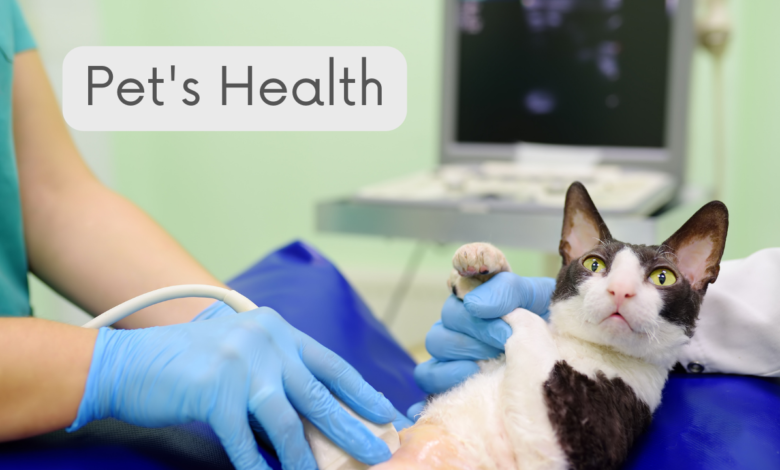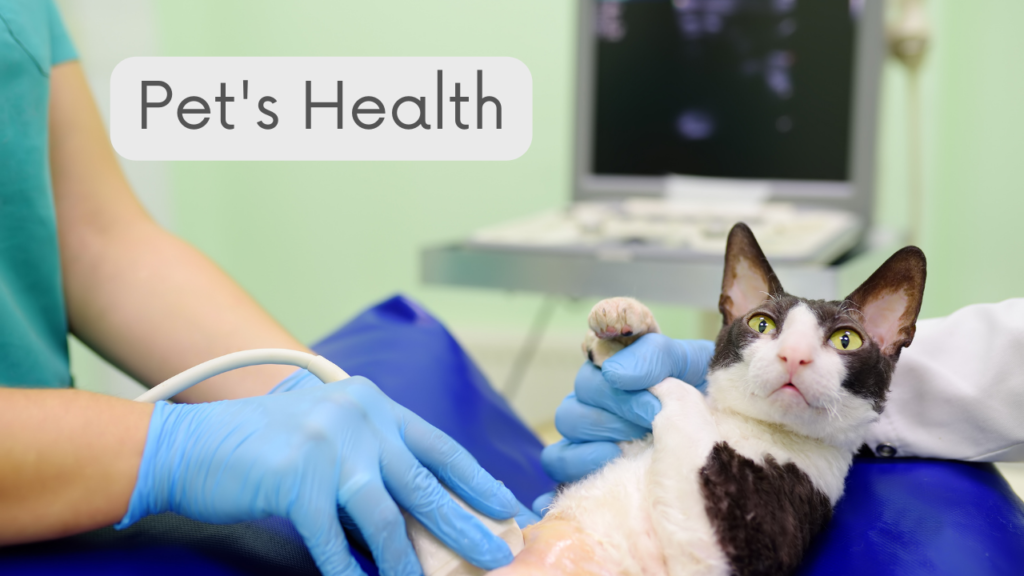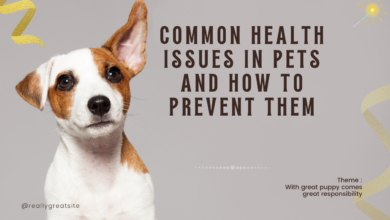
Ensuring the health and well-being of our pets is a vital aspect of responsible pet ownership. Pets, like humans, require regular care and attention to lead happy and healthy lives.

This article provides essential tips for maintaining your pet’s health, including proper nutrition, regular exercise, grooming, and preventive veterinary care.
Proper Nutrition
A balanced diet is fundamental to a pet’s overall health. The nutritional needs of pets vary depending on their species, age, size, and activity level. For instance, dogs require a diet rich in proteins, fats, and carbohydrates, while cats need a diet high in animal protein due to their obligate carnivorous nature. It’s crucial to select high-quality commercial pet food or prepare homemade meals that meet your pet’s dietary requirements.
When choosing commercial pet food, opt for products with natural ingredients and avoid artificial preservatives, colors, and flavors. Always check the label for nutritional adequacy statements and ensure the food is appropriate for your pet’s life stage (puppy, adult, senior).
In addition to the primary diet, consider your pet’s specific needs. Some pets may benefit from dietary supplements, such as omega-3 fatty acids for a healthy coat or glucosamine for joint support. Consult your veterinarian before introducing supplements to ensure they are safe and necessary.
Regular Exercise
Physical activity is essential for maintaining a pet’s physical and mental well-being. Regular exercise helps prevent obesity, improves cardiovascular health, and reduces the risk of certain diseases. It also provides mental stimulation, which can help prevent behavioral issues stemming from boredom or anxiety.
The type and amount of exercise required vary depending on the species and breed. For example, dogs generally need daily walks and playtime, with more active breeds requiring additional exercise. Activities like fetch, agility training, and swimming are excellent for high-energy dogs. Cats, while more independent, also need physical activity. Interactive toys, laser pointers, and climbing structures can encourage movement and mental engagement.
Small mammals, such as rabbits and guinea pigs, also benefit from exercise. Provide a safe, enclosed area where they can run and explore. Ensure they have access to tunnels, chew toys, and other enrichment items to keep them entertained.
Grooming and Hygiene
Regular grooming is crucial for maintaining your pet’s health and appearance. Grooming needs vary depending on the species, breed, and coat type. For example, long-haired dogs and cats require more frequent brushing to prevent matting and reduce shedding, while short-haired breeds may need less frequent grooming.
Bathing is another essential aspect of pet hygiene. Use pet-specific shampoos and conditioners to clean your pet’s coat and skin. The frequency of baths depends on the pet’s lifestyle and coat type. For instance, dogs that spend a lot of time outdoors may need more frequent baths than indoor cats. However, excessive bathing can strip natural oils from the skin, so it’s essential to find a balance.
Dental care is often overlooked but is crucial for preventing dental diseases. Regular brushing with pet-specific toothpaste can help prevent plaque buildup and reduce the risk of periodontal disease. Dental chews and toys can also promote oral health.
Nail trimming is necessary to prevent overgrown nails, which can cause pain and difficulty walking. Be careful not to cut too close to the quick, as this can cause bleeding. If you’re unsure how to trim your pet’s nails, consult a veterinarian or professional groomer.
Preventive Veterinary Care
Regular veterinary visits are essential for monitoring your pet’s health and catching potential issues early. Routine check-ups typically include vaccinations, parasite control, dental exams, and overall health assessments. Vaccinations protect pets from contagious diseases like rabies, distemper, and parvovirus in dogs, and feline leukemia in cats. Your veterinarian will recommend an appropriate vaccination schedule based on your pet’s age, lifestyle, and risk factors.
Parasite prevention is another critical aspect of pet health. Fleas, ticks, and heartworms can cause serious health problems if left untreated. Use preventive treatments as recommended by your veterinarian, and regularly check your pet for signs of parasites. Regular deworming is also necessary, especially for pets that spend time outdoors.
In addition to routine care, be vigilant for signs of illness or discomfort in your pet. Symptoms such as changes in appetite, behavior, or appearance can indicate underlying health issues. Early detection and treatment can significantly improve your pet’s quality of life and prognosis.
Mental and Emotional Well-Being
A pet’s mental and emotional health is as important as their physical health. Pets can experience stress, anxiety, and depression, just like humans. Providing a stimulating and nurturing environment is crucial for their well-being. Ensure your pet has plenty of opportunities for play, socialization, and mental stimulation.
Training and socialization are vital for preventing behavioral issues. Positive reinforcement training helps pets understand acceptable behavior and strengthens the bond between pet and owner. Socialization with other animals and people can reduce anxiety and fearfulness, leading to a more confident and well-adjusted pet.
Additionally, spending quality time with your pet is essential for their emotional well-being. Whether it’s playing, cuddling, or simply being in the same room, your presence provides comfort and security. Recognize and respond to your pet’s emotional needs, and seek professional help if you notice signs of distress or behavioral changes.
Conclusion
Maintaining your pet’s health requires a commitment to proper nutrition, regular exercise, grooming, and preventive veterinary care. By prioritizing these aspects, you can ensure a happy, healthy, and fulfilling life for your furry friend. Remember, a well-cared-for pet is a reflection of a responsible and loving owner. Your efforts in maintaining their health will not only enhance their quality of life but also strengthen the bond you share with them.




